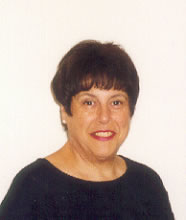Helen Schwartz

IU School of Liberal Arts
Professor Emeritus of English (retired)
Fulbright Teaching Scholarship
Turkey, 2010
What was your project about?
I was awarded a Fulbright Scholar grant to lecture at Bilkent University in Ankara, Turkey, during the spring semester 2010. I taught two courses: “Modern American Drama” and “Writing in the Internet Age” in the Department of American Culture and Literature. I found it easy to fit in their established program. Nevertheless, one semester does not provide sufficient time for getting familiar with the culture and learning best how to teach in a new university. The more you learn about the culture, the more you can give back to your class. The IUPUI Office of Intentional Affairs facilitated my plans to travel in Turkey.
What were the benefits of the Fulbright project?
I enjoyed the opportunity of teaching abroad in various ways. I explored the history of modern Turkey and ancient civilizations of Anatolia. I had a chance to travel around the country and participate in archaeological trips. The American Embassy in Ankara was extremely helpful for getting connected with other universities who invited me to lecture. I had very interesting discussions with people I met and started understanding current issues from a Turkish point of view. When you are open to learn from others they are open to learn from you. It was also interesting to teach young people and learn from their perspectives. They are mostly 18-21 years old, very different from IUPUI's range of ages.
The university provided me with a modern apartment on campus in walking distance of a modern shopping mall, so it was easy to adjust to living at Bilkent. I was able to continue learning the cultural differences and adjust when needed.
What kind of challenges did you confront?
Students were puzzled when I asked them “to what extent” was a website credible on a scale of 1 to 10, because they were only used to yes/no judgments. During my stay I was treated with great kindness. When I first visited Istanbul by bus, I was dropped off at an incredibly huge place where SUVs took passengers closer to their final destination. I knew I was going to Sultanahmet (a name I heard someone crying out and pointing to a van), but I didn’t know how to tell the driver the place I wanted. One of my few phrases in Turkish was “Please help me.” When I said this, a young man who knew English informed the driver, and a middle-aged woman in traditional dress put her hand on my arm and patted it.
What would you recommend to the Fulbright applicants?
I would recommend this experience to adventurous and flexible faculty members. Language is not always an insurmountable barrier. The superintendent at my apartment spoke no English and I spoke little Turkish. He was the first person I ever telephoned who spoke only Turkish. I had only two things to say: “I have a big problem” or “I have a little problem,” and then he would come.
Anyone, who is interested in reading my adventures during spring semester 2010 in Turkey, can go to my personal blog “Teaching in Turkey" at www.turkeyinteaching.blogspot.com.
